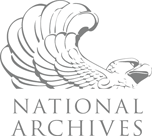 Visualització del contingut web
Visualització del contingut web
 Visualització del contingut web
Visualització del contingut web
Distance Learning Program
Through its Distance Learning Program the Pare Lorentz Center now has the ability to bring many of our workshops, resources, lectures, and presentations directly into the classroom free of charge.
View More
We Dare Not Fail: The Story of the Tuskegee Airmen
In the year before the the US entered World War II, the still-segregated United States military agreed to train Black pilots for the first time. Known as the Tuskegee Airmen, these men became symbols of courage to the nation, taking on Hitler in Europe, and Jim Crow back home.
View More
Everyone Has the Right: Eleanor Roosevelt and the Universal Declaration of Human Rights
In 1946, Eleanor Roosevelt became chairperson of the newly formed UN Commission on Human Rights, taking a leading role in drafting the Universal Declaration of Human Rights. "We won the war," she said. "Now we need to work to win the peace."
View MoreInvestigating the Holocaust
Investigating the Holocaust is a series of short videos that trace the history of the Nazi Party from its inception through World War II and the policies that led to the murder of millions of innocent people.
View MoreCivics Curriculum Guide
Twenty-eight activities for the 2020 Goodman Initiative for American Youth Civics Program, presented in ten sections centered on key civic themes and topics.
View MoreExecutive Order 9066
An animated short-film about the Executive Order signed by President Roosevelt in 1942 that authorized the incarceration of 120,000 Japanese Americans during World War II.
View MoreFDR and the Dust Bowl
Learn how President Franklin Roosevelt responded to one of the worst man-made environmental disasters in American history–the Dust Bowl.
View MoreThe Story of the Tuskegee Airmen
The story of the first Black airmen to fly in World War ll.
View MoreDay By Day
Using a chronology originally compiled by Pare Lorentz, this interactive timeline features historical appointment calendars, documents, photographs, audio and film on President Franklin D. Roosevelt’s daily activities 1933-1945.
View More#Roosevelts on Film
Sourced from 11 digitally-restored home movies recently donated by Missy LeHand’s family, this footage offers a rare, intimate view of the private social lives of both the President and Eleanor Roosevelt.
View MoreOur Plain Duty
In commemoration of the 80th anniversary of the signing of the Social Security Act, the Pare Lorentz Center presents “Our Plain Duty," a web feature on the history and impact of social security in America.
View MorePare Lorentz Bio
Pare Lorentz, known as FDR’s moviemaker, felt strongly that movies held enormous potential for social justice and education. Under the Roosevelt Administration, he worked to create federally funded films good enough to share billing on commercial screens with Hollywood productions.
View More


